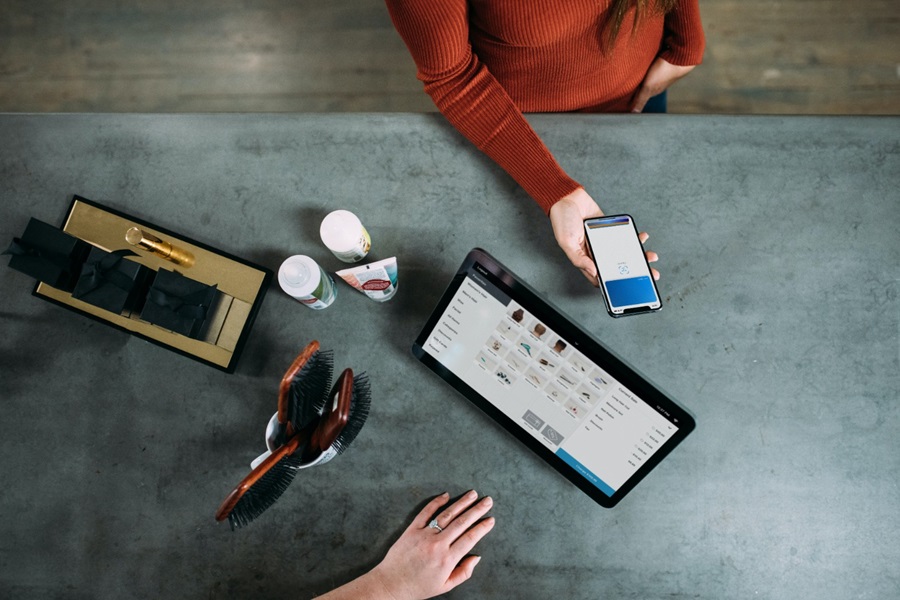Has COVID-19 changed retailers’ personalities? And are these changes temporary or permanent?
Retailers have always had two personalities.
1. The one most familiar to the public has long been the salesperson: “Look at this! Try that! Buy this now before you regret it!” The rationale is to bring the retailer’s brand promise to life by thrilling and energising shoppers.
Of course, retailers would lack a convincing or genuine salesperson’s personality if they failed to also invest in having a buyer’s personality.
2. Until now, the buyer’s personality has largely been hidden from public view. This personality is characterised by phrases like: “You need to ship me more of that item! The quality of that item isn’t up to standard! You need to drop your prices, or I’ll switch to another supplier!” In the case of the buyer’s personality, the goal is to actualise the retailer’s brand promise by differentiating the assortment from that of rivals.
COVID-19’s rapid transformation of digital communication and online catalogues has changed both personality sets regarding how they connect with shoppers. But even before the pandemic, CX+ Retail 2020 shows us that just 19% of consumers feel that global retailers are truly customer centric. However, changes in the salesperson’s personality are an evolution, while the buyer’s personality is undergoing a revolution. The pandemic is dramatically and radically accelerating these changes in ways that will endure for years to come. Let’s explore this ‘evolution versus revolution’ comparison.
Salesperson persona evolution during COVID-19
Advances in machine learning, AI and programmatic personalised marketing allow retailers to be far more precise in the types of messaging pushed to prospective purchasers as well as time and place of delivery.
Previously, a furniture retailer might have run an evening TV spot ad declaring: “Get off that couch right now! Run-don’t-walk this weekend to our store! Get our prices while they’re hot!” This might land with some consumers, but not that couple who’ve booked a romantic spa retreat getaway for the weekend.
Using new technology, this couple may instead receive a completely different message and call to action. Rather than demand “Get off your couch” the retailer might say, “Stay where you are”. Instead of instructing them to “Come down to our store this weekend”, a retailer may say, “We’ll have it delivered and placed in your home while you’re away.”
Consequently, retailers are now developing at least two, if not three, brand promises: one for loyal shoppers, another for less loyal shoppers and yet another for new prospects. The process of creating the promise is, however, no different from before.
The evolution of the salesperson persona is fuelled by Big Data investments and automated decision-making. Companies that remain one-dimensional when it comes to selling, risk being seen as too general and too old-fashioned. Meanwhile, retailers embracing these tools can deploy multiple personalities and multiple solutions for different consumers.
Think about the salesperson’s evolution this way - why market the same message to an 18-year-old male, a 45-year-old female, and a 75-year-old married couple, when you can change the message and the delivery platform using an algorithm?
The revolution in the buyer’s future personality
Globalisation – allowing more people to communicate in real time – has given the public access to more information about how products are sourced, fabricated and processed; how they are packaged, shipped and, more importantly, how these steps differ between two products with approximately the same function. The great news is that today not all of this information must fit on the product packaging or inserts.
The pandemic has served to further highlight provenance and sustainability credentials to consumers. This is even more important when we consider that pre-pandemic CX+ Retail 2020 found that just 3% of consumers globally are unconcerned about retail industry sustainability. A shopper looking to buy jeans, wine or a cut of meat can now reasonably expect access to information on how that item was created and how it arrived at its location. In addition to asking, “Is my coffee cultivated sustainably?”, the end-user might also reasonably ask: “How has that farmer been impacted by COVID-19?”
Demonstrating the human side of sourcing is a new element of the retailer’s brand promise. Think about the buyer’s personality revolution like this: a consumer can reasonably expect to compare any product’s entire supply chain to that of a similar item to arrive at a final purchase decision.
This revolution first disrupted the global fashion retail industry with a focus on poor factory working conditions, primarily across Asia and Africa. Today, scrutiny cuts across retail categories, where according to CX+ Retail 2020 55% of people globally said their concern for the environment makes them scrutinise my past buying behaviour. At its heart, the buyer’s personality is not only now more visible, but is fast becoming an integral part of the salesperson’s personality.
Such morphing is emblematic of how consumer power now dominates the conversation, with the most successful global retailers elevating ‘shopper-centric’ models to quasi-religious status. When retailers place consumers at the heart of everything they do, it is their demands that drive organisational change and transform how personalities manifest in the marketplace.
The revolution in the buyer’s personality is being carried along by a more acute focus on fair trade conditions for farmers, sustainable fishing and land use and increasingly in terms of packaging waste and chemical run-off. Advances in blockchain on the supply-side and in 5G on the demand-side are opening up new possibilities regarding the speed and types of information shared with end-consumers.
So, how many of these COVID-19 retailer personality changes are permanent?
As retailers develop their next generation of CX platforms, they will be wise to invest in evolving their salesperson’s personalities, while revolutionising their buyers’ personalities.
The harsh reality in 2020 is that retailers failing to connect during COVID-19 may need to close operations permanently while those that transform their two personalities will survive to sell products to a wide range of consumers in the years ahead.


